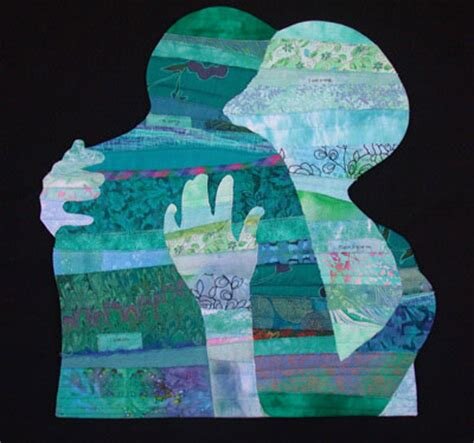by Fr Gabriel-Allan Boyd
What would you say if I told you we could come up with a better version of Jesus? What if we could just have a kind of Jesus who better reflects society’s social justice values? What if we could have this Jesus say that only unforgivable sin is making other people feel uncomfortable about their sin? What if we could anoint a version of Christ where we could reject the teachings that make us feel ill-at-ease about Him...but one who’s more inclusive of other religions and other gods and of other morality and of people that like to do things their own way? Couldn’t he be someone who’s better-suited for our pluralistic society to follow? What if we could have a version of Jesus where we could dispense with the difficult and awkward things He taught, like, “I am the way, the truth and the life. No one comes to the Father, except through Me” (John 14:6), and with the notion that there are people who honor God with their lips, but their hearts are far from Him—people who teach humanity’s doctrines instead of God’s doctrines (Matthew 15:8), or that we should be wary of “evil thoughts—murder, adultery, sexual immorality [sexual immorality is such an outdated idea], theft, false testimony, slander” because those things “defile...or pollute” us (Matthew 15:19-20)? What if we could dispense with the one that says we need to love our enemies because that unites us with God and makes us more God-like (Matthews 5.43-47), or that we really need to choose between whether we want to serve God, or serve money, because we can’t serve both (Matthew 6.24), or that we need to take up our cross and follow Jesus, being willing to lose our own beloved lives for His sake (Luke 9.23-25), or that only those who eat His flesh and drink His blood have any part in Him (John 6:53), or that there actually *is* a place with weeping and gnashing of teeth (Matthew 13-41-43)? Of course, there are many, MANY more of Jesus’ teachings that are uncomfortable and politically incorrect and hard, but this certainly gives us the gist of the kinds of things that people want in their 2.0 version of Jesus...one that’s more palatable to their way of doing things. If we only embraced this newer, better, politically-correct, more comfortable version of Jesus, then the world we live in could find true healing and utopian existence. We know best how to discern and how to solve the greatest problems facing humanity. Right?
It seems that society around us (and even some people in the Orthodox Church) have come to subscribe in the belief that we know good from evil better than God. Hopefully, that last phrase has brought up a certain memory for us...reminding us of something from humanity’s ancient past...a time when we forgot just what it was we were created for.
So, what is the purpose for which we were created? We were created in the image of God and given God’s breath, to grow in God’s likeness and to have communion with God (Genesis 1:26). We were created as perfect (actually God used the word, “good”) but perfect in the way a parent might refer to their newborn child as perfect. That child is born in the image of its parents, but expected to grow in their likeness as they get older...to take on mom & dad’s virtues and mannerisms. By God’s grace He also expects us, His children, to take on His virtues and His mannerisms.
When we see Adam & Eve’s fall (Genesis 3:1-13) we see a stark hint regarding our continuing fall toward our own self-destruction. There, back in the Garden of Eden, God gave Adam and Eve the responsibility of stewardship over the garden and all its creatures (Genesis 2:15). He told them that they could eat of everything in the garden…except for the fruit from one particular tree—“The Tree of Knowledge of Good and Evil” (Genesis 2:16-17). God told humanity that the consequence of eating from this tree would begin a process of decay toward death (“dying you shall die” – in Hebrew). However, the serpent—the devil—came along and convinced Eve that God was lying. He told her that the only reason God didn’t want them to eat the fruit of “The Tree of Knowledge of Good & Evil” is because He didn’t want them to become God-like…knowing good from evil. Notice that. They were fooled into believing that they could decide for themselves what was good and what was evil...and so they ate.
We soon see its effects, where Adam became so self-conscious, he acquired a complex...unable to bear the thought of God seeing him naked—no longer being clothed in God’s light. So, Adam hid when he heard God walking through the Garden. God called out, “Adam where are you?” hoping that Adam would take mournful notice of his sudden estrangement from God…and turn back to Him. However, instead of responding with attentive and careful repentance, Adam carried that estrangement further, to its most self-absorbed effect. When God asked Adam if his sudden desire to keep God from seeing his nakedness was due to his having eaten of the “Tree of Knowledge of Good & Evil,” Adam responded with a scheming, accusation. Remembering God’s instruction that eating the fruit of “The Tree of Knowledge of Good & Evil” would result in decay unto death, Adam tried to save his own skin by killing off his wife…and also killing off God. He responded to God with the words, “That WOMAN that YOU put here with me…she gave me the fruit to eat!” In Adam’s new-found self-absorption, he blamed both his wife and God…hoping that the consequence would fall on Eve and upon God…and not on himself (Genesis 3:1-13).
The result of this self-absorption and this false perception of self-sufficiency apart from God, not only caused a rupture in the relationship between Adam and God—and Adam and his wife—but also between humanity and the entire creation, as God said that this would also cause the earth to experience a curse (Genesis 3:17-19). Adam & Eve’s sudden obsession with their selves brought decay unto death upon all material things around them, since they were intimately connected to the dust of the earth from which they were created. And so, everything around humanity became objects to be consumed to fulfill their own appetites, instead of that for which they were created—to be intimately united with God. When humanity chose to decide for themselves what was good and what was evil, it was like the ripples that are caused by throwing a pebble into a pond, it doesn’t just affect the place where it lands, but reverberates outward, distressing the serene clarity of the entire pond. It’s contagious. The same is true today, our futile attempts at total self-sufficiency, our self-absorption, and our refusal to accept what God says is good and what is evil rips a hole into the relationship between us and God and also between us and all those around us—bringing decay unto death upon everything we hold dear.
In Greek the term “Anti-Christ,” doesn’t mean quite what people think it means. Putting one’s trust in the Anti-Christ isn’t merely about choosing someone who is against Christ (the enemy of Christ), but rather, that prefix, “Anti” means “instead of.” For instance, at the end of liturgy you receive “anti-doron,” which means, “instead of the gifts.” When we resolve that we should be able to decide for ourselves what’s good and what’s evil, choosing some other way to save the world, because we know better what it needs...then we make ourselves anti-Christ—a god far too small for what we need and what the world needs. Since humanity’s fall from grace all those thousands of years ago, over and over again we’ve proved that taking the place of god instead of God—deciding for ourselves what’s good for us and what’s not—only brings about our own self-destruction. Face it. We’ve consistently proved that we make terrible gods.
God longs to restore us to our original state—that for which we were created—to also have us mature into unity with Him, into His way of offering life to the world. By God’s grace, let’s draw each other and the world around us toward repentance (trusting what He says is good and what is evil). By God’s grace, let’s become ones who participate in God’s mission to the world, reconciling it all with Him. Are you in Christ? “Therefore, if anyone is in Christ, they are a new creation; old things have passed away; behold, all things have become new. Now, all things are of God, who has reconciled us to Himself through Jesus Christ, and has given us the ministry of reconciliation, that is, that God was in Christ reconciling the world to Himself, not holding their offenses against them, and has committed to us the word of reconciliation. Now then, we are ambassadors for Christ, as though God were pleading through us: we implore you on Christ’s behalf, be reconciled to God.” ~ 2 Corinthians 5:17-20







